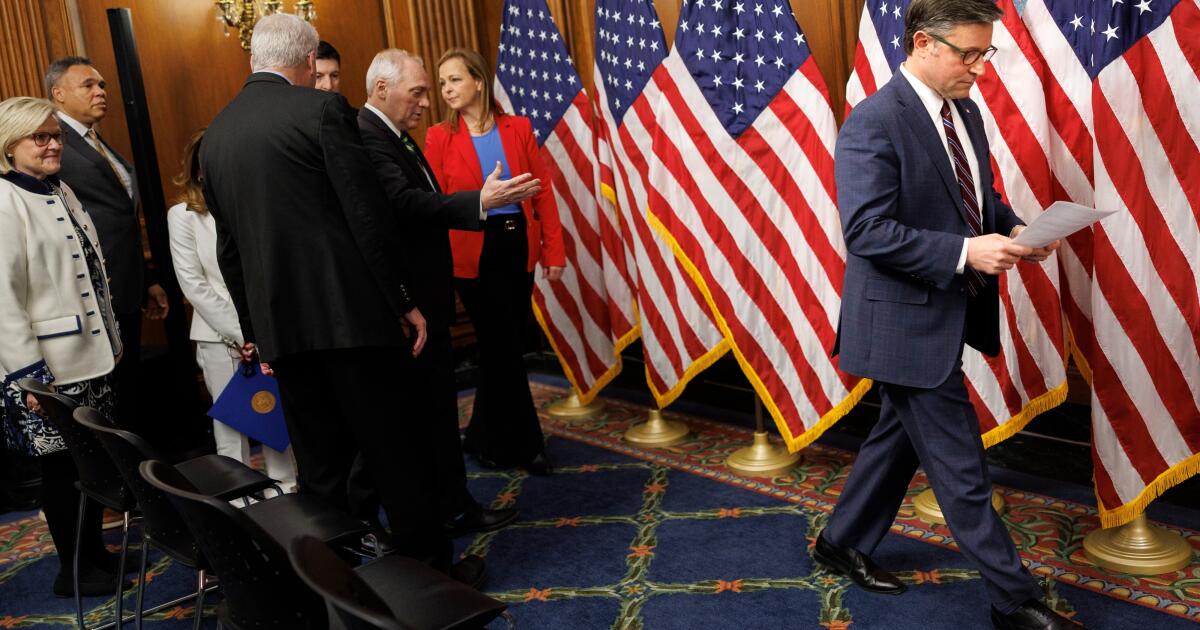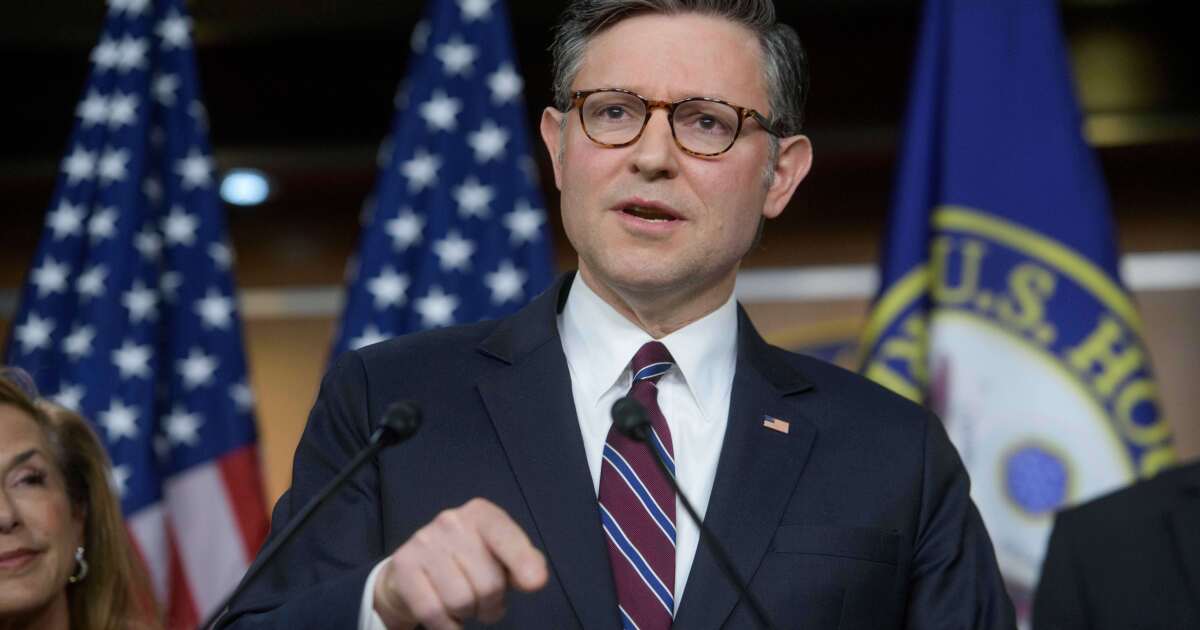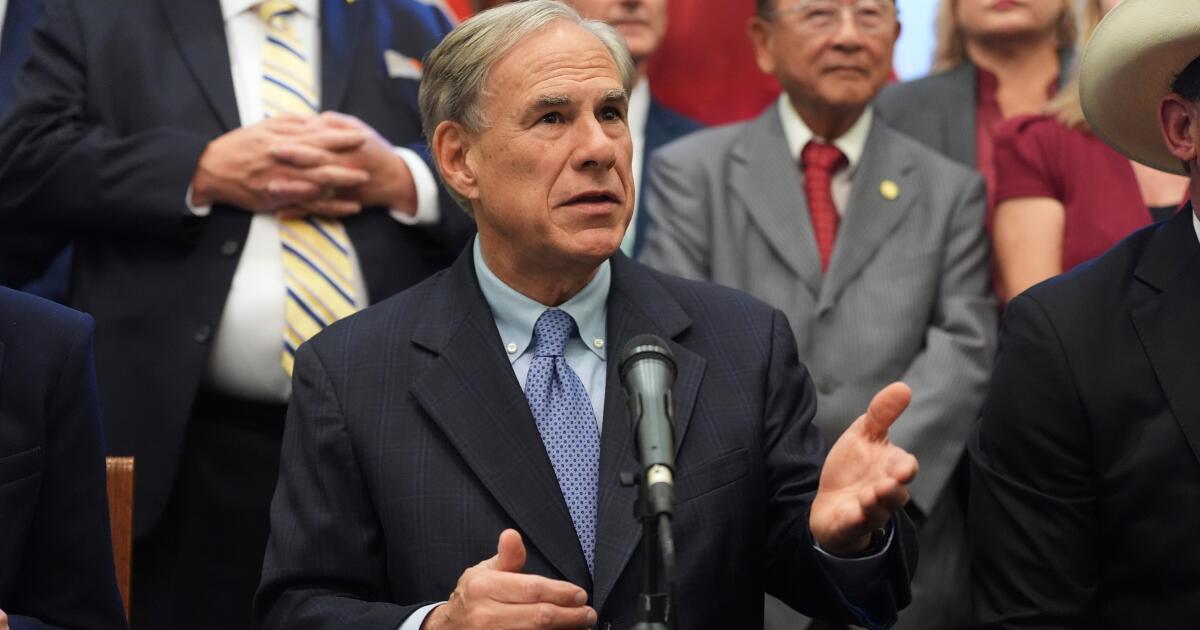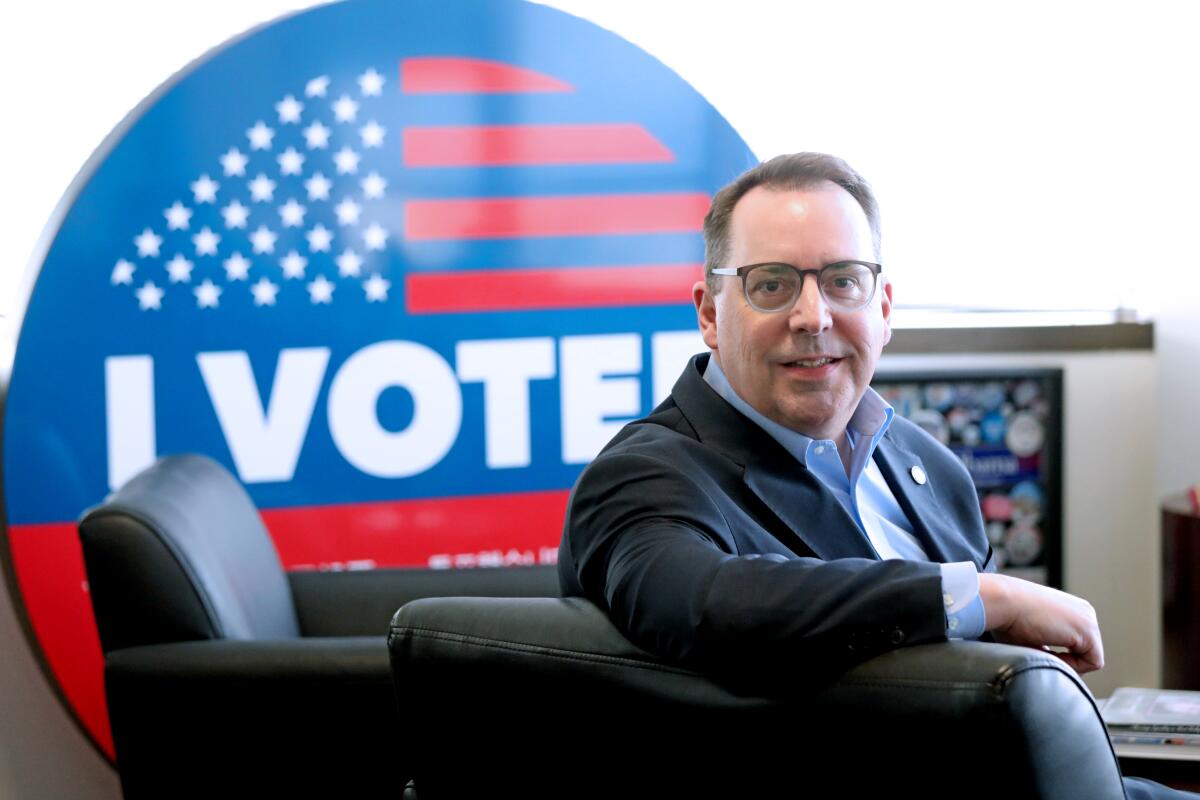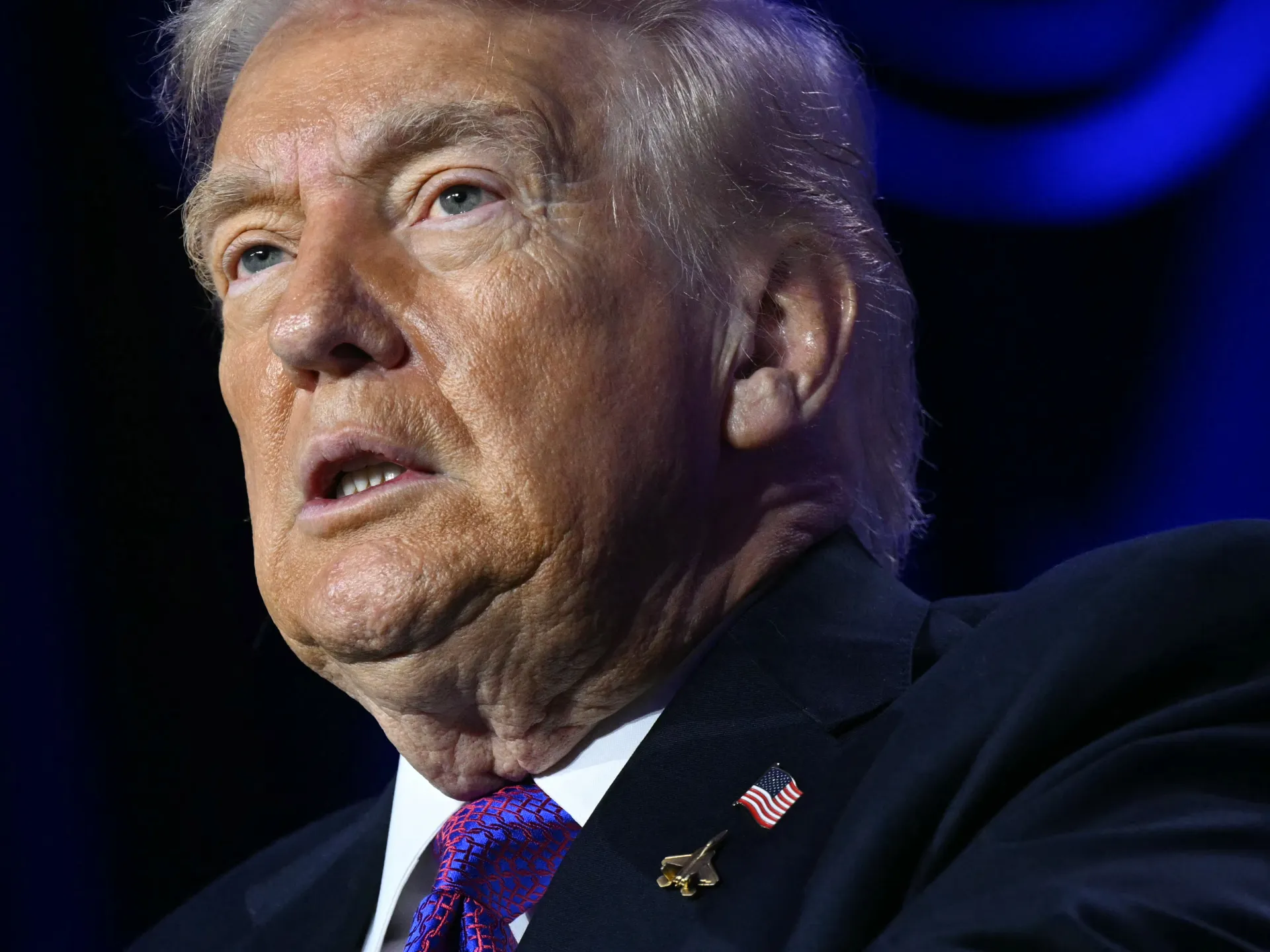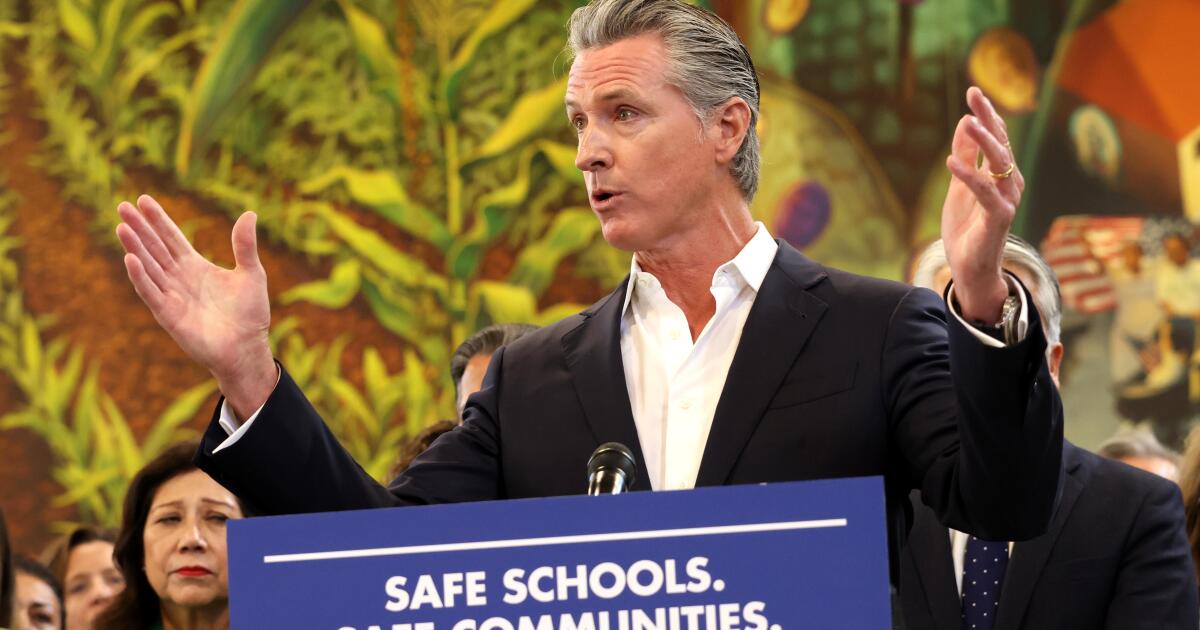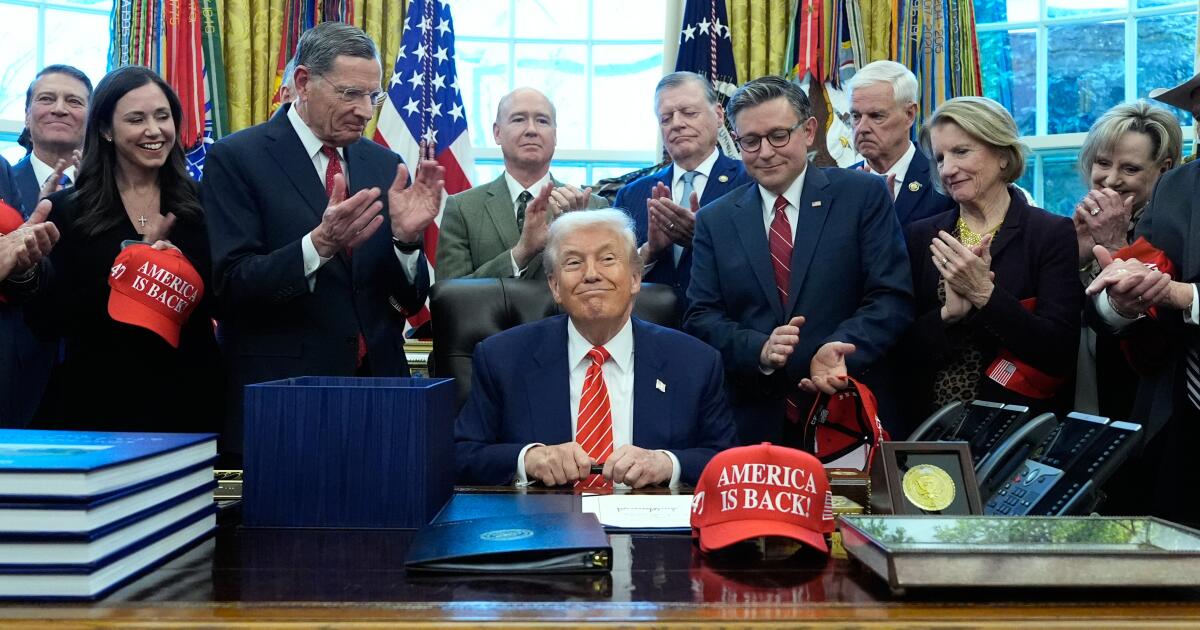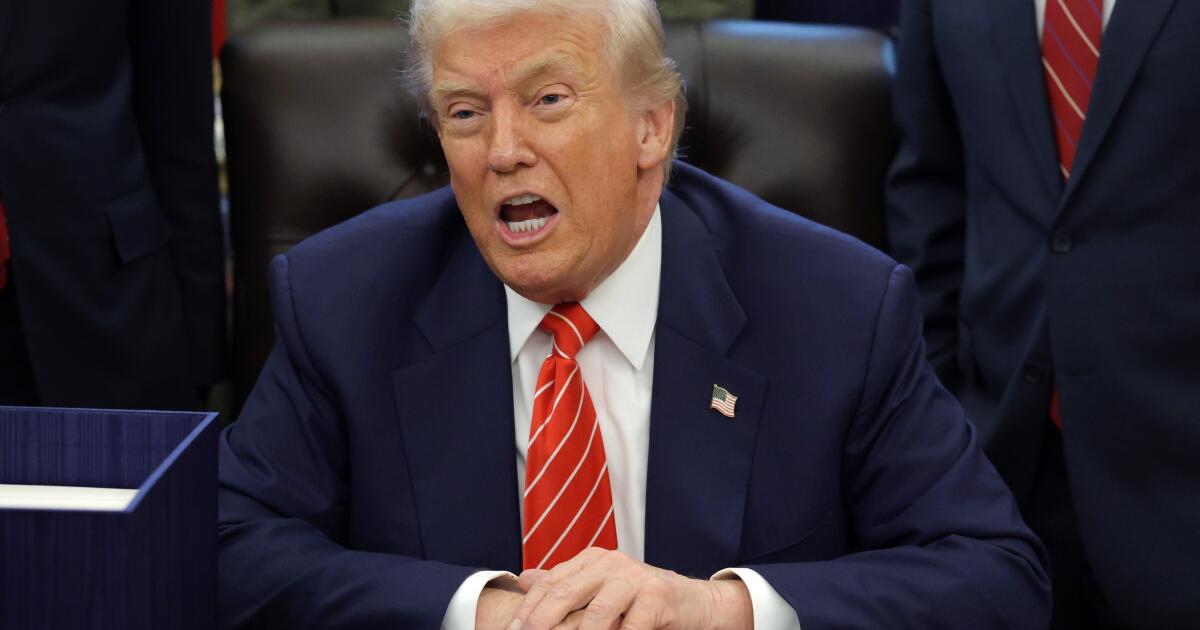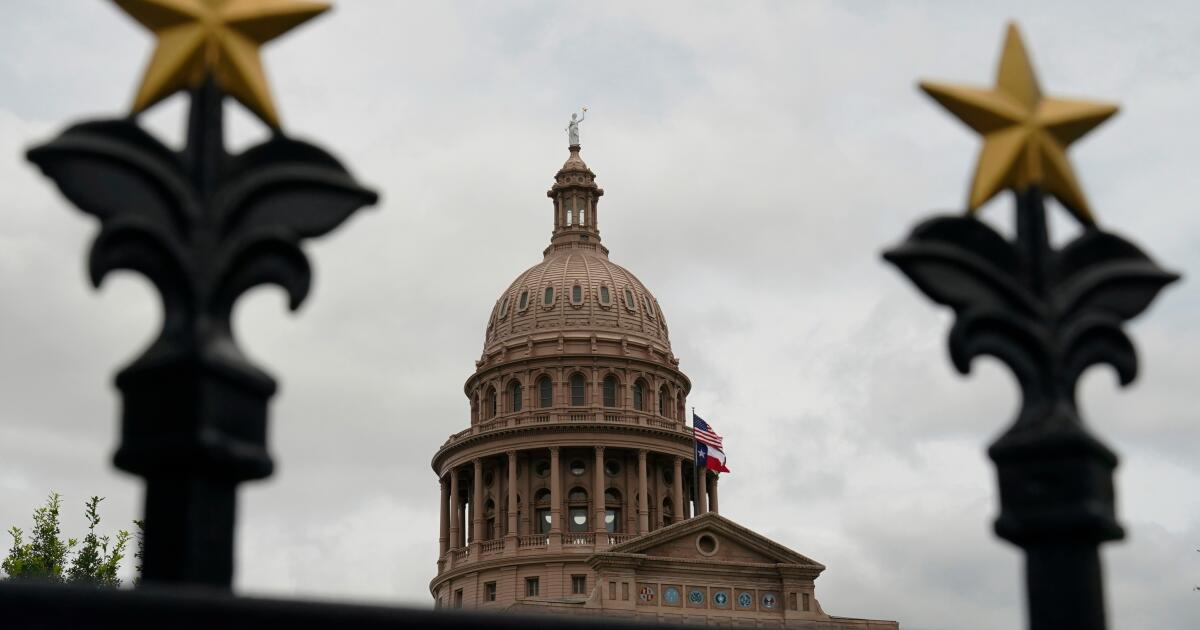Supreme Court ruling offers little relief for Republicans divided on Trump’s tariffs
WASHINGTON — For a few hours on Friday, congressional Republicans seemed to get some relief from one of the largest points of friction they have had with the Trump administration. It didn’t last.
The Supreme Court struck down a significant portion of President Trump’s global tariff regime, ruling that the power to impose taxes lies with Congress. Many Republicans greeted the Friday morning decision with measured statements, some even praising it, and GOP leaders said they would work with Trump on tariffs going forward.
But by the afternoon, the president made clear he had no intention of working with Congress and would continue to go it alone by imposing a new global import tax. He set the new tax at 10% in an executive order, announcing Saturday he planned to hike it to 15%.
Trump is enacting the new tariff under a law that restricts the import taxes to 150 days and has never been invoked this way before. Though that decision is likely to have major implications for the global economy, it might also ensure that Republicans will have to keep answering for Trump’s tariffs for months to come, especially as the midterm elections near. Opinion polls have shown most Americans oppose Trump’s tariff policy.
“I have the right to do tariffs, and I’ve always had the right to do tariffs,” Trump said at a news conference Friday, contending that he doesn’t need Congress’ approval.
Tariffs have been one of the only areas where the Republican-controlled Congress has broken with Trump. Both the House and Senate at various points had passed resolutions intended to rein in the tariffs imposed on key trade partners such as Canada. It’s also one of the few issues about which Republican lawmakers, who came of age in a party that largely championed free trade, have voiced criticism of Trump’s economic policies.
“The empty merits of sweeping trade wars with America’s friends were evident long before today’s decision,” Sen. Mitch McConnell (R-Ky.), the former longtime Senate Republican leader, said in a statement Friday, noting that tariffs raise the prices of homes and disrupt other industries important to his home state.
Democrats’ approach
Democrats, looking to win back control of Congress, intend to make McConnell’s point their own. At a news conference Friday, Senate Democratic leader Chuck Schumer said Trump’s new tariffs “will still raise people’s costs and they will hurt the American people as much as his old tariffs did.”
Schumer challenged Republicans to stop Trump from imposing the new global tariff. Democrats on Friday also called for refunds to be sent to U.S. consumers for the tariffs struck down by the Supreme Court.
“The American people paid for these tariffs and the American people should get their money back,” Sen. Elizabeth Warren (D-Mass.) said on social media.
The remarks underscored one of the Democrats’ central messages for the midterm campaign: that Trump has failed to make the cost of living more affordable and has inflamed prices with tariffs.
Small and midsize U.S. businesses have had to absorb the import taxes by passing them along to customers in the form of higher prices, employing fewer workers or accepting lower profits, according to an analysis by the JPMorganChase Institute.
Will Congress act?
The Supreme Court decision Friday made it clear that a majority of justices believe that Congress alone is granted authority under the Constitution to levy tariffs. Yet Trump quickly signed an executive order citing the Trade Act of 1974, which grants the president the power to impose temporary import taxes when there are “large and serious United States balance-of-payments deficits” or other international payment problems.
The law limits the tax to 150 days without congressional approval to extend it. The authority has never been used and therefore never tested in court.
Republicans at times have warned Trump about the potential economic fallout of his tariff plans. Yet before his “Liberation Day” of global tariffs last April, GOP congressional leaders declined to directly defy the president.
Some GOP lawmakers cheered on the new tariff policy, highlighting a generational divide among Republicans, with a mostly younger group fiercely backing Trump’s strategy. Rather than heed traditional free trade doctrine, they argue for “America First” protectionism, which they argue will revive U.S. manufacturing.
Republican Sen. Bernie Moreno, an Ohio freshman, slammed the Supreme Court’s ruling on Friday and called for GOP lawmakers to “codify the tariffs that had made our country the hottest country on Earth!”
A few Republican opponents of the tariffs, meanwhile, openly cheered the Supreme Court’s decision. Rep. Don Bacon (R-Neb.), a critic of the administration who is not seeking reelection, said on social media that “Congress must stand on its own two feet, take tough votes and defend its authorities.”
Bacon predicted there would be more Republican resistance coming. He and a few other GOP members were instrumental this month in forcing a House vote on Trump’s tariffs on Canada. As that measure passed, Trump vowed political retribution for any Republican who voted to oppose his tariff plans.
Groves writes for the Associated Press. AP writers Matt Brown, Joey Cappelletti and Lisa Mascaro contributed to this report.
